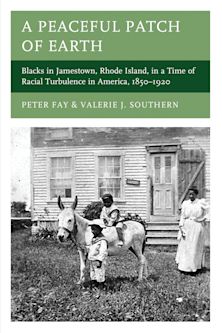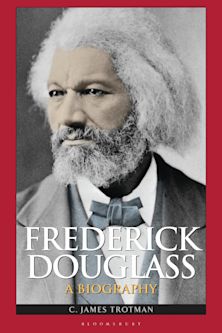- Home
- ACADEMIC
- History
- United States History
- The Miami Times and the Fight for Equality
The Miami Times and the Fight for Equality
Race, Sport, and the Black Press, 1948–1958
The Miami Times and the Fight for Equality
Race, Sport, and the Black Press, 1948–1958
This product is usually dispatched within 3 days
- Delivery and returns info
-
Free US delivery on orders $35 or over
You must sign in to add this item to your wishlist. Please sign in or create an account
Description
This book helps inject the Miami Times into the historical narrative of the Civil Rights Movement in Florida by highlighting its role in Rice v Arnold, a 1949 lawsuit filed by black recreational golfers in Miami to oppose segregation on the city’s public golf course. Founded in 1923 by Bahamian-born H.E.S. Reeves who ran the newspaper with his son Garth C. Reeves Sr., the newspaper financially and editorially supported efforts to desegregate Miami schools, beaches, residential communities, public transportation systems and sports complexes. Its support of the Rice v Arnold legal challenge is but one example that demonstrates how the newspaper, as a conduit of social change, worked with other Miami community leaders to improve conditions for the city’s black population.
Table of Contents
Chapter 2: Why Golf?
Chapter 3: From Printer to Publisher: H.E.S. Reeves and the Miami Times
Chapter 4: We Wish to Plead our Own Cause: The Black Press of America
Chapter 5: Word Warriors: Vigilant Headlines of the Miami Times
Chapter 6: The Negro Golf Experience in the United States
Chapter 7: Chipping Away At Segregation
Chapter 8: From Putting Greens to Judicial Courts
Chapter 9: Sand Traps in the Sunshine: Obstacles Toward Victory
Chapter 10: “We Do Not Want to be Equal – We Want to be the Same”
Chapter 11: Fairer Greens
Product details
| Published | Aug 06 2020 |
|---|---|
| Format | Paperback |
| Edition | 1st |
| Extent | 198 |
| ISBN | 9781498576659 |
| Imprint | Lexington Books |
| Dimensions | 9 x 6 inches |
| Series | Sport, Identity, and Culture |
| Publisher | Bloomsbury Publishing |
About the contributors
Reviews
-
As well as adding to the history of the black press' involvement in the long civil rights movement, The Miami Times and the Fight for Equality will be of particular interest to historians interested in Florida history, and more generally to graduate students and scholars fascinated by the intersection of sport and race.
American Journalism: A Media History Journal
-
The Miami Times and the Fight for Equality provides insight into the Miami Times’ decade long civil rights activism that helped desegregate the Miami Springs Municipal Golf Course. Nearly 100 years after relocating to Miami, this family-owned newspaper continues to feature community pride and record the practices of racial discrimination in the era of Jim Crow with the history of civil rights and wrongs. An excellent book for students and others interested in American history and the desegregation of the Miami Springs Golf Course case, this-well documented book serves as a timely reminder of a bygone era, adds value to the literature, and helps confirm the legacy of the Miami Times and the Reeves family in Miami and Florida’s history.
Dorothy Jenkins Fields, The Black Archives Historic Lyric Theater Cultural Arts Complex
-
In this rare and important study on the Black Press, McLeod painstakingly mined the pages of the Miami Times to excavate a compelling story about the newspaper’s leading role in dismantling segregated practices in Miami, particularly in sports. The book connects Black Miami’s civil rights contributions to the larger American community, and fortifies modern social justice movements by adding to conversations about vestiges of institutional discrimination that still persist today. Underscored is the value of preserving and utilizing cultural artifacts like court documents, oral histories, and African American newspapers.
E. Murell Dawson, Florida A&M University
-
The black press is a window through which we review the past and an instrument which often documents that a particular controversial event occurred. Owing to the absence of published works, the literary writing and poems of domestics and other non-professionals are recorded. Yanela G. McLeod's book fills an important void in the history and historiography of African-American history and journalism. It is going to generate other publications, and, in times infuse and inspire youth to a higher level of academic excellence.
H. L. Suggs, Clemson University

ONLINE RESOURCES
Bloomsbury Collections
This book is available on Bloomsbury Collections where your library has access.



































